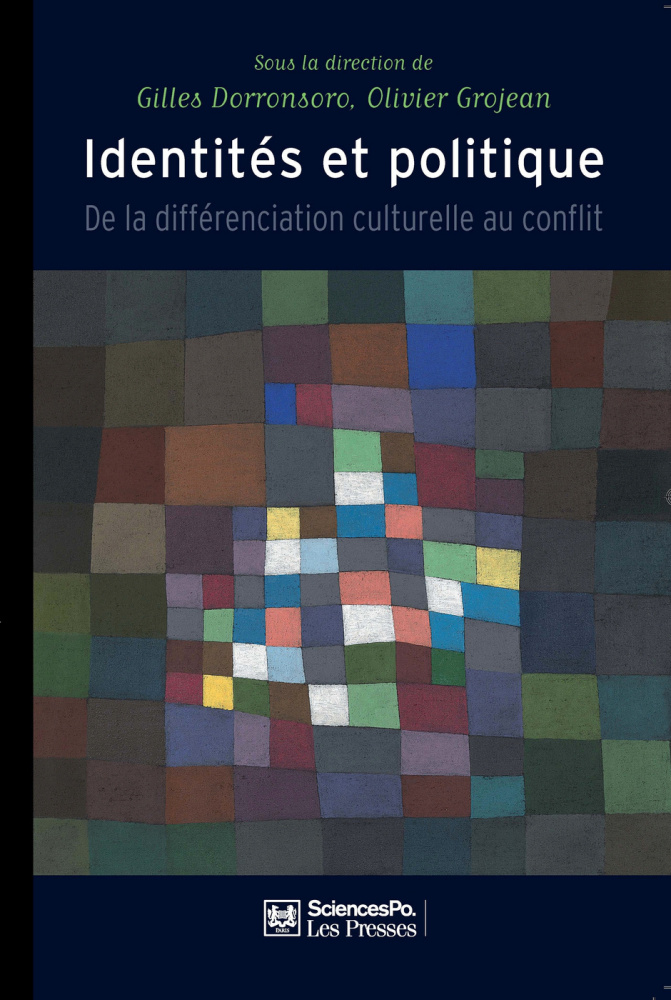Identités et politique
De la différenciation culturelle au conflit
First Edition
How cultural differences degenerate into conflicts? Read More
The number of conflicts emerging as a result of identity-based claims — autonomy, independence and cultural rights, among others — have continually increased since 1945, sometimes going so far as to threaten the very existence of certain States. Far from having disappeared within democratic regimes, such conflicts are particularly important in Turkey, Iran and Pakistan, even despite processes of state-building and profoundly different relations with regard to minorities.
In these three countries, ethnic and religious identity is a basic principle used to routinely categorise individuals and provide group hierarchies. However, although these differences may engender hierarchies and rivalry, they do not necessarily lead to conflict. How, therefore, do communities move from 'cultural friction' to open, identity-based conflict?
By establishing territorial breakdowns, thoroughly mapping, identifying and classifying populations, imposing educational standards and unequally distributing resources, States produce the very conditions that are conducive to identity-based mobilisations. The tipping over into violence thus depends on the State policies — of discrimination, openness or repression — that structure relations between groups.
Specifications
- Publisher
- Presses de Sciences Po
- Author
- Gilles Dorronsoro, Olivier Grojean,
- Collection
- Académique
- Language
- French
- Tags
- , , , Democracy, Turkey
- Publisher Category
- > Fields > World and societies
- Publisher Category
- > International
- Publisher Category
- > International field
- BISAC Subject Heading
- SOC000000 SOCIAL SCIENCE
- BIC subject category (UK)
- H Humanities > J Society & social sciences
- Onix Audience Codes
- 06 Professional and scholarly
- Credit
- Presses de Sciences Po
- Title First Published
- 08 January 2015
- Subject Scheme Identifier Code
- Thema subject category: Society and culture: general
- Type of Work
- Monograph
- Includes
- Index, Bibliography
Paperback
- Publication Date
- 08 January 2015
- ISBN-13
- 978-2-7246-1635-4
- Product Content
- Text (eye-readable)
- Extent
- Main content page count : 304
- Code
- 978-2-7246-1635-4
- Dimensions
- 13.8 x 21 x 1.2 cm
- Weight
- 366 grams
- List Price
- 25.00 €
- ONIX XML
- Version 2.1, Version 3
ePub
- Publication Date
- 18 March 2015
- ISBN-13
- 978-2-7246-1637-8
- Product Content
- Text (eye-readable)
- Extent
- Main content page count : 304
- Code
- 9782724616378
- Technical Protection ebook
- Adobe DRM
- List Price
- 17.99 €
- ONIX XML
- Version 2.1, Version 3
Google Book Preview
Contents
Introduction / IDENTITÉ, HIÉRARCHIE ET MOBILISATION
Gilles Dorronsoro et Olivier Grojean
La spécificité du capital identitaire
Identité et hiérarchie
L'accès aux ressources
Trois modes de transformation des hiérarchies
L'émergence d'acteurs collectifs
Les jeux d’échelle
La violence
Bibliographie
Chapitre 1 / L'EFFERVESCENCE ETHNIQUE ET RÉGIONALE EN IRAN
L’EXEMPLE DU GILÂN
Christian Bromberger
Ethnie, ethnicité, des mots tabous dans l’Iran d’aujourd’hui
Unifications impériale et islamique9
Le Gilân, une société polyethnique stratifiée
Poussée du sentiment régional et activisme culturel
Régionalisme, ethnicisme, localisme, des sources de conflits
Ripostes de l’État
Régionalisme, ethnicités et nature de l’État iranien
Bibliographie
Chapitre 2 / GENÈSE DE LA CAUSE AZERBAÏDJANAISE EN IRAN
UNE ENTREPRISE DE TRANSFORMATION DU SYSTÈME DE HIÉRARCHISATION ETHNIQUE
Gilles Riaux
La genèse de la cause azerbaïdjanaise sous le régime impérial
La cause azerbaïdjanaise dans la période révolutionnaire
Ethnicité, ressources et mobilisations
Bibliographie
Chapitre 3 / MODES DE GESTION DES IDENTITÉS DANS ET PAR LES PARTIS POLITIQUES EN TURQUIE
Élise Massicard
Un registre illégitime, une base de mobilisation réelle
Les modes de gestion du paramètre identitaire dans et par les partis
L’intégration paradoxale du facteur identitaire
Bibliographie
Chapitre 4 / DIVERSITÉ CULTURELLE ET HIÉRARCHIE ETHNIQUE
L’USAGE DES CATÉGORIES DANS LE CONFLIT KURDE EN TURQUIE
Clémence Scalbert-Yücel
La transformation du champ discursif
La hiérarchisation ethnique comme structure implicite du discours
Les relais du projet étatique de civilisation des Kurdes
La domination confortée
Bibliographie
Chapitre 5 / « NARCISSISME DE LA PETITE DIFFÉRENCE » ET INTOLÉRANCES RELIGIEUSES
LE CAS DES ALÉVIS ET DES SUNNITES ENANATOLIE CENTRALE
Benoît Fliche
Des différences objectives entre alévis et sunnites ?
Frictions et conflits à Sorgun et en Turquie dans les années 1970
Lecture des logiques de différenciation
Sur une autre scène
Identification et objet identificatoire
Objet identificatoire, narcissisme et hostilité
Signifier le signifiant interdit, une question d’inceste
Une différence sans altérité
Bibliographie
Chapitre 6 / LA TRANSFORMATION D'UN CONFLIT EN DIASPORA
LE RÔLE DES POLITIQUES ÉTATIQUES
Christine Moliner
Recompositions identitaires
Réinvention du conflit en diaspora
La transformation de la politique publique comme facteur explicatif
Comment les politiques publiques affectent la valeur des identités
Bibliographie
Chapitre 7 / ENTRE QUÊTE D'ÉTHIQUE ET SOUFFRANCE À DISTANCE
L’AUTORADICALISATION D’UN JEUNE JIHADISTE INDIEN EN GRANDE-BRETAGNE
Aminah Mohammad-Arif
La trajectoire géographique : itinérance subie, itinérance choisie
La trajectoire politico-religieuse : entre quête d’éthique et individualisme
L’aléatoire : l’ultime clé du passage à la violence ?
Souffrance à distance et action déterritorialisée
Bibliographie
Chapitre 8 / LA VILLE DE QUETTA ET LA GUÉRILLA BALOUTCHE
ENJEUX D’UNE VIOLENCE POLITIQUE URBAINE
Luc Bellon
La guérilla baloutche dans un contexte urbain
L’importation progressive du conflit baloutche à Quetta
État en réaction et réactions à l’État pendjabi
Quetta l’« im-possédée »
La stigmatisation des victimes
Bibliographie
Chapitre 9 / L'INSTRUMENTALISATION D'UN CONFLIT ETHNIQUE PAR L'ÉTAT
LE CONFLIT AZÉRO-KURDE EN IRAN
Chirine Mohséni
Les relations entre Azéris et Kurdes avant 1979
L’ouverture du jeu politique
La violence
L’impact sur les mouvements nationaux
Bibliographie
Chapitre 10 / LA TRANSFORMATION DES CADRES D'INTERPRÉTATION AU MOYEN-ORIENT
L’ANNÉE 1979
Hamit Bozarslan
Fragilisation des statu quo
États de guerre, états de violence
Régime de subjectivité et ethos des années 1980
Idéologie et axiologie
Le Léviathan et le « partisan »
Bibliographie

